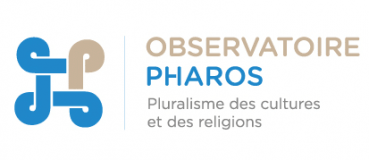|
Au vu des événements particuliers qui agitent la Turquie, nous vous proposons exceptionnellement un bulletin spécial réservé à ce pays.
A la suite de signaux et appels anciens, devenus bien plus précis et pressants au cours des dernières semaines, et en dépit de plusieurs mises en garde, Sainte-Sophie (Aya Sofya), devenue musée depuis 1934, « offerte à l’humanité » selon les termes de Kemal Atatürk et inscrite au Patrimoine mondial de l’UNESCO, a été réouverte au culte musulman. La satisfaction des fidèles turcs est manifeste, comme le prouvent les innombrables messages écrits adressés au Centre de Communication de la Présidence turque, appelé CIMER. Berkley Center a cependant publié plusieurs articles d’universitaires turcs très critiques concernant la conversion de Sainte-Sophie. A l’extérieur du pays, le patriarche grec-orthodoxe Bartholomée en premier, puis le patriarche Kirill, puis le Pape François, puis le COE, comme nous l’avons relevé dans le bulletin précédent, ont exprimé leur désaccord avec une telle décision. Un penseur libanais diplômé d’Al-Azhar, Redhwan El-Sayyid, a lui aussi condamné le statut de mosquée de Sainte-Sophie. Pour lui, transformer des églises en mosquées, même si cela est arrivé plusieurs fois à travers l’histoire, va à l’encontre des enseignements coraniques. Pour étayer son argumentation, il cite plusieurs versets du Coran ainsi que le comportement modèle du Calife Omar Ibnul Khattab et d’autres après lui qui refusèrent, par respect pour les églises, d’y prier. Répondant aux réactions du monde chrétien, le président turc Recep Tayyip Erdogan a indiqué que la Turquie était un pays souverain et que l’utilisation de Sainte-Sophie comme lieu de prière au lieu d’un musée ordinaire devrait réjouir les personnes de toute croyance. En visio-conférence, M. Erdogan a participé à l’inauguration du monastère de Sumela dans la province de Trébizonde et déclaré ceci : « si nous avions été un peuple attaquant les symboles des autres croyances, le monastère de Sumela qui nous appartient depuis 5 siècles, n’existerait plus ». Le patriarche œcuménique de Constantinople Bartholomée, après avoir vigoureusement condamné il y a quelques semaines la décision de rendre Sainte-Sophie musulmane, a remercié le président turc pour la restauration du monastère de Sumela et sa réouverture. Enfin, chrétiens et archéologues craignent cette fois la transformation en mosquée d’une autre église byzantine de Constantinople qui, jusqu’à ce jour fonctionne comme musée. Il s’agit de la célèbre église Saint-Sauveur-in-Chora, connue comme « Kariye Camii » et dont le changement de statut a été décidé par le Conseil d’État turc en novembre 2019. Following former signals and calls, which have become much more precise and urgent in recent weeks, and despite several warnings, Hagia Sophia (Aya Sofya), which became a museum since 1934, "offered to humanity", said Kemal Atatürk, and a UNESCO World Heritage Site, has been reopened to Muslim worship. The satisfaction of the Turkish faithful is evident, as evidenced by the countless written messages addressed to the Communication Center of the Turkish Presidency, called CIMER. Berkley Center has, however, published several highly critical Turkish academic papers regarding the conversion of Hagia Sophia. Outside the country, the Greek Orthodox Patriarch Bartholomew first, then Patriarch Kirill, then Pope Francis, then the WCC, as we noted in the previous bulletin, expressed their disagreement with such a decision. A Lebanese thinker who graduated from Al-Azhar, Redhwan El-Sayyid, has also condemned the mosque status of Hagia Sophia. For him, turning churches into mosques, even though it has happened several times throughout history, goes against the teachings of the Koran. To support his argument, he cites several verses from the Koran as well as the model behavior of Caliph Omar Ibnul Khattab and others after him who refused, out of respect for the churches, to pray there. Responding to reactions from the Christian world, Turkish President Recep Tayyip Erdogan said Turkey is a sovereign country and the use of Hagia Sophia as a place of prayer instead of a regular museum should delight people of all faiths. In videoconference, Mr. Erdogan participated in the inauguration of the Sumela monastery in the province of Trebizond and declared this: “if we had been a people attacking the symbols of other beliefs, the Sumela monastery which has belonged to us for 5 centuries, would no longer exist ”. Ecumenical Patriarch of Constantinople Bartholomew, after vigorously condemning the decision to make Hagia Sophia Muslim a few weeks ago, thanked the Turkish president for the restoration of the Sumela monastery and its reopening. Finally, Christians and archaeologists this time fear the transformation into a mosque of another Byzantine church in Constantinople, which until today functions as a museum. This is the famous Saint-Sauveur-in-Chora Church, known as "Kariye Camii" and whose status change was decided by the Turkish State Council in November 2019.
|




